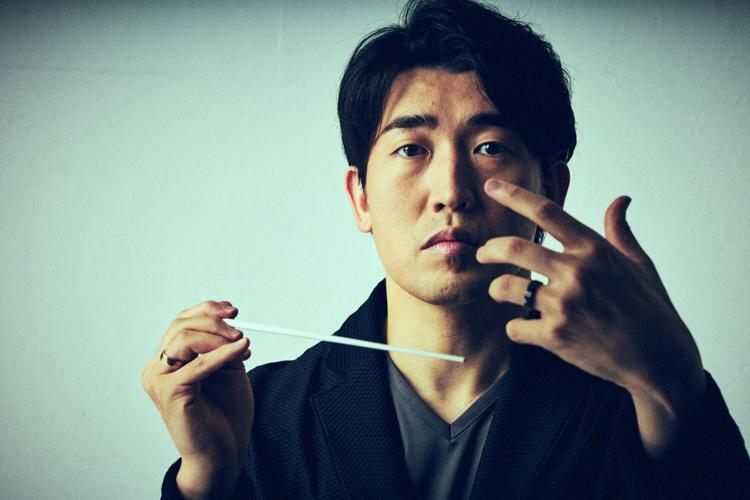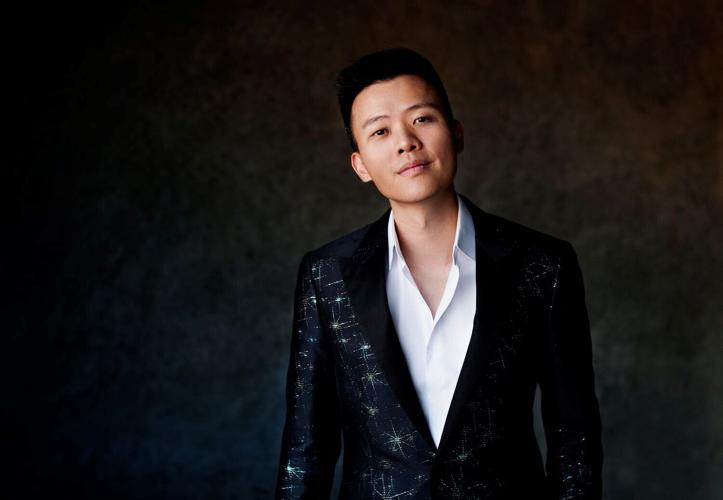By his count, conductor Keitaro Harada has done 36 performances with the Tucson Symphony Orchestra since he finished a University of Arizona conducting fellowship in 2011.
But not one of those performances was on the orchestra’s coveted Classic Series.
This weekend, Harada can check that box when he leads the orchestra in “Ravel and Dvorák” with guest pianist David Fung.
“I’m very, very excited about it,” Harada said from his native Tokyo, where he lives when he is not in the U.S. Harada splits his time between Japan, where he has guest-conducted with most of the country’s biggest orchestras, and Savannah, Georgia, where he has been artistic and music director of the Savannah Philharmonic orchestra since the 2020-21 season.
This will be his first time leading the Tucson orchestra since he conducted the “E.T.” cine-concert in November 2019. Harada said he crafted this weekend’s program to reflect his experiences in Tucson and the U.S., from Frank Ticheli's jubilant and jazzy “Blue Shades” that opens the concert to Dvorák’s Symphony No. 8 that anchors it.
“I chose the Dvorák because it is the first ever symphony I ever conducted in Tucson,” said Harada, who last month received the prestigious 2023 Sir Georg Solti Conducting Award. “Coming back to Tucson in the fall to perform this symphony is, just for me, the most meaningful thing.”
The program also includes Ravel’s Piano Concerto in G, with Funk making his TSO debut and his second Tucson appearance after being part of the lineup for Arizona Friends of Chamber Music’s 2022 Tucson Winter Chamber Music Festival.
“Ravel is such a master of orchestral colors. You could give him a white canvas and when you give the paint brush to Ravel, he will color it with mixed colors to an imagination that is beyond human knowledge,” said Harada, who said the Ravel and Dvorák are connected through the dominant G minor key.
The symphony “is one of those beautiful works that starts with a great cello line wrapped in this gorgeous sound of Dvorák’s color and such a strong identity to his Czech culture,” he added.
This weekend’s turn with the TSO is a homecoming for Harada, who calls the Old Pueblo “my home away from home.”
“I spent many years living in Tucson, breathing in Tucson, eating in Tucson, making friends in Tucson,” he said, answering emailed questions in a series of video messages through Facebook Messenger. “It’s just a place that has a very special place in my heart. The sunset, the hike, there’s so much beauty that is organic in Tucson that you just don’t get anywhere else in the world.”
Harada, 38, first came to Tucson in 2008 as part of the inaugural University of Arizona James E. Rogers Institute for Orchestral and Opera Conducting fellowship. During his three years in the program, he guest conducted with the TSO and Arizona Opera, as well as the UA School of Music ensembles.
“Being surrounded by wonderful friends and culture and history in Tucson has very much developed me as a human being, as a conductor, as an artist, as an interpreter,” he said. “Tucson is a place where I can relax and just be a sponge and soak in more things that Tucson has to offer that I have not been in touch with over the last several years.”
The TSO will perform “Ravel And Dvorák” at 7:30 p.m. Friday, Nov. 10, and 2 p.m. Sunday, Nov. 12, at Linda Ronstadt Music Hall, 260 S. Church Ave. Friday’s concert, part of the orchestra’s Classic With a Twist series, includes more interaction with the audience and no intermission.
Tickets are $14-$90 through tucsonsymphony.org.
Beethoven's now-completed 10th symphony wrapped up with the help of artificial intelligence, music scientists and experienced composers. The final piece is set to release today.





